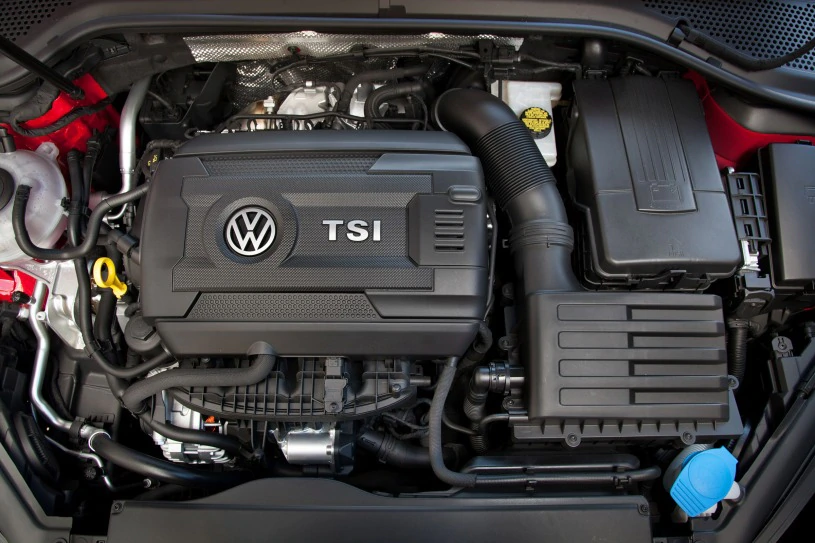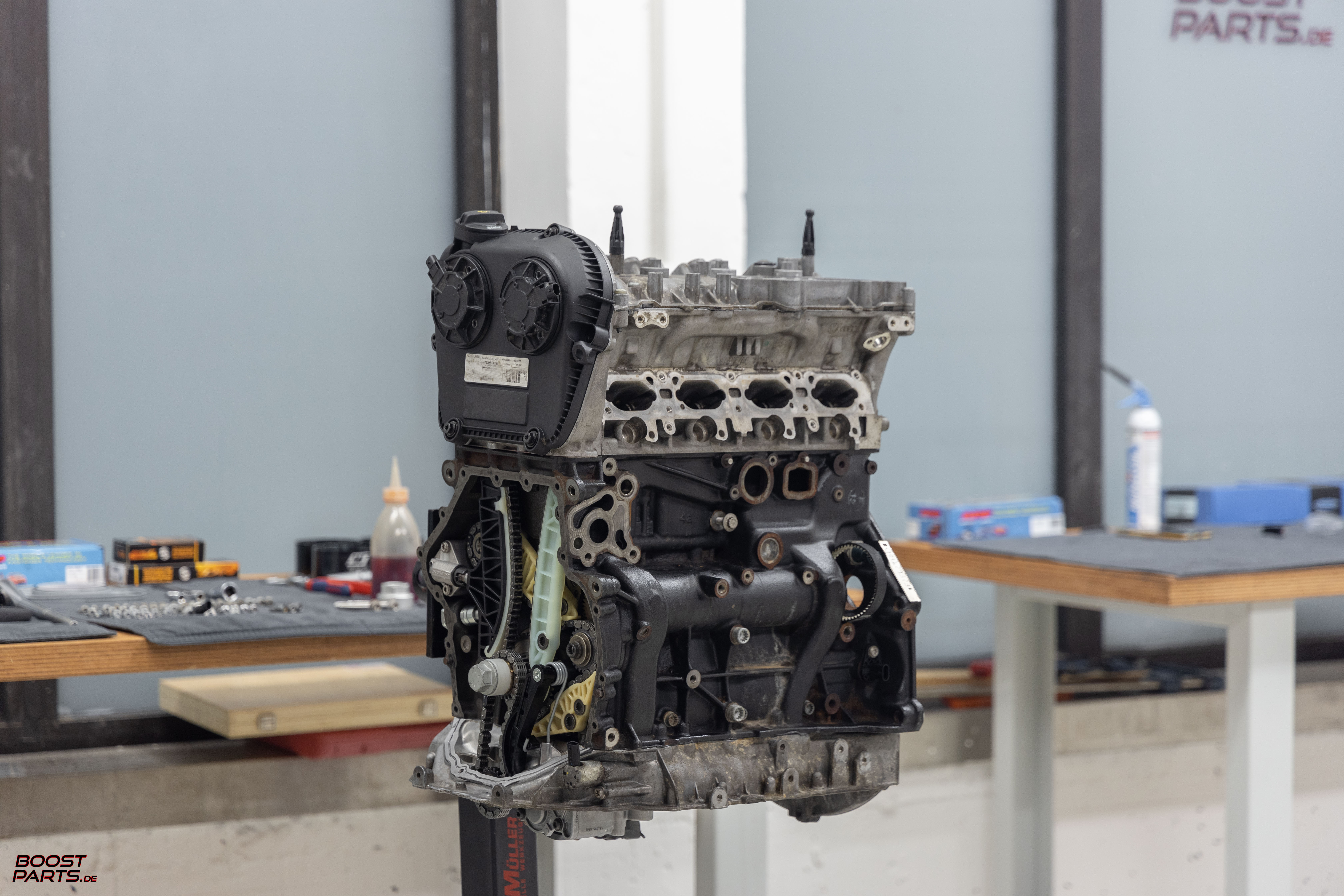Your Overview to the Golf 7 GTI Engine: Dependability and Upgrades
The Golf 7 GTI, equipped with its 2.0-liter turbocharged inline-four engine, represents an equilibrium of performance and integrity that interest fanatics and everyday motorists alike. Recognizing the factors that add to its reliability, along with potential issues and their options, is crucial for taking full advantage of the driving experience. Additionally, discovering numerous efficiency upgrades can substantially boost both power and effectiveness. The concern continues to be: what specific upgrades can change your GTI right into a truly exceptional vehicle while ensuring its durability?
Review of the Golf 7 GTI Engine
The heart of the Golf 7 GTI is its 2.0-liter TSI engine, a turbocharged four-cylinder that delivers an excellent blend of power and effectiveness. This engine produces a durable 220 horse power and 258 lb-ft of torque, enabling the vehicle to increase from 0 to 60 miles per hour in simply 5.6 secs, showcasing its sporty character. The turbocharged layout not only boosts efficiency however also optimizes fuel effectiveness, making it a functional selection for daily driving.
Incorporating advanced technology, the engine features straight fuel shot, which enhances burning performance and minimizes discharges. In addition, the Golf 7 GTI is outfitted with either a six-speed handbook or a six-speed DSG dual-clutch automatic transmission, offering motorists with the versatility to pick their preferred driving design. The automobile's front-wheel-drive format, combined with a well-tuned suspension, ensures agile handling and a receptive driving experience.
Engine Reliability Factors
Integrity is a vital facet of any performance-oriented automobile, and the Golf 7 GTI's engine is no exception. A number of aspects add to the general integrity of this very related to powerplant, which is essential for both day-to-day driving and spirited efficiency.
First Of All, the Golf 7 GTI is outfitted with a durable 2.0-liter turbocharged inline-four engine, known for its reliable style and strong design. This engine features a created steel crankshaft and light weight aluminum engine block, which provide superior strength and longevity while decreasing weight.
Second of all, routine maintenance plays an essential duty in enhancing engine dependability. Sticking to the maker's preferred solution intervals, making use of high-quality lubricating substances, and changing important elements such as spark plugs and filters can considerably extend engine life.
In addition, the top quality of fuel utilized can likewise affect reliability. Costs gas is advised to make certain optimum efficiency and reduce the risk of knocking or detonation.
Last but not least, the car's digital monitoring system continually monitors engine criteria, enabling real-time changes to enhance efficiency and effectiveness while safeguarding against possible problems. Collectively, these factors emphasize the Golf 7 GTI engine's reputation for reliability among lovers and everyday drivers alike.
Common Issues and Solutions
The Golf 7 GTI, while celebrated for its performance, is not without its challenges. Among one of the most frequently reported problems are engine oil intake and turbocharger failures, which can considerably impact lorry dependability. Comprehending these common problems and their solutions is vital for preserving ideal engine efficiency.

Engine Oil Consumption
While many enthusiasts appreciate the efficiency of the Golf 7 GTI, engine oil consumption can become a notable problem. Owners might notice that their lorries require more frequent oil top-ups than expected, often connected to various elements integral in the engine's layout and operation.
One common problem is the engine's straight gas injection system, which can lead to increased oil usage due to the combustion process. Additionally, the use of high-performance driving habits can intensify oil burn-off, specifically under hostile throttle problems. Motorists might likewise experience oil leaks from seals and gaskets, which can contribute to reduced oil degrees.
To attend to oil intake, routine maintenance is critical. Routine oil changes using top notch synthetic oil can assist maintain optimal engine performance and longevity. Keeping track of oil levels and conducting timely checks can prevent possible issues before they intensify. If excessive consumption persists, it might be a good idea to speak with a professional service technician to evaluate the engine for prospective inner issues, such as worn piston rings or shutoff seals. Embracing these methods can significantly mitigate issues concerning oil intake in the Golf 7 GTI, making sure a more satisfying and reputable driving experience.
Turbocharger Failures
Turbocharger failures can substantially impact the performance of the Golf 7 GTI, leading to lessened power and efficiency. Oil leaks usually stem from worn seals or harmed gaskets, which can lead to oil contamination and succeeding engine damage.
One more prevalent issue is wastegate failing, which can result in overboost or underboost conditions. This not only affects the lorry's performance yet can also cause serious engine damage if left uncontrolled. Updating to a much more durable wastegate can improve integrity and efficiency.
Extreme shaft play shows wear in the turbocharger's bearings, which can cause a full turbo failure. Monitoring increase stress and paying attention for uncommon noises can aid detect this issue early.
To stop turbocharger failings, regular upkeep, including oil changes and air filter replacements, is crucial. Additionally, investing in top quality aftermarket elements may supply better integrity and performance, inevitably boosting the driving experience of the Golf 7 GTI.
Performance Upgrades to Think About
What performance upgrades can really boost the driving experience of a Golf 7 GTI? To release the full capacity of this iconic hot hatch, several targeted modifications can boost power, managing, and general driving pleasure.
One of one of the most reliable upgrades is a high-performance turbocharger. Replacing the stock device with an aftermarket choice can dramatically raise horsepower and torque, providing an extra electrifying acceleration experience. Enhancing this upgrade with an efficiency intercooler helps preserve optimal temperature levels, making sure consistent power delivery.
Next, take into consideration upgrading the exhaust system. A less restrictive exhaust not just improves engine efficiency however additionally creates a more hostile sound that amplifies the car's flashy character. Matching this with a remapped ECU will certainly enhance gas shipment and ignition timing, additional increasing performance.
Suspension here upgrades, such as adjustable coilovers, can improve taking care of by decreasing the vehicle's center of mass and lowering body roll. Additionally, a set of high-performance tires will enhance grip, permitting sharper cornering and enhanced overall stability.
Together, these upgrades can change the Golf 7 GTI right into a more dynamic and exhilarating driving maker, making every trip a remarkable experience. golf 7 gti engine.
Suggested Maintenance Practices
Maintaining the Golf 7 GTI engine calls for interest to key practices that guarantee optimum efficiency and durability. Routine oil adjustments are essential for engine wellness, while timely timing belt substitute is critical to avoid prospective failings. Executing these upkeep techniques will certainly help keep your automobile running efficiently and efficiently.
Regular Oil Modifications
Regular oil modifications are important for the optimum performance and long life of the Golf 7 GTI's engine. Keeping a regular oil modification timetable ensures that the engine operates smoothly and efficiently. The recommended interval for oil changes visit homepage is generally every 5,000 to 10,000 kilometers, depending on driving conditions and the sort of oil utilized.
Utilizing top quality artificial oil is crucial as it provides premium lubrication and thermal security compared to conventional oils. This is particularly important for the Golf 7 GTI, which features a turbocharged engine that generates greater operating temperatures. Normal oil modifications assist to get rid of impurities and sludge buildup, which can jeopardize engine efficiency and bring about early wear.
Additionally, fresh oil navigate to this website improves fuel performance and decreases hazardous exhausts, adding to a cleaner environment. Throughout the oil change procedure, it is additionally recommended to replace the oil filter to ensure optimal filtering and prevent any type of particles from getting in the engine. Abiding by these techniques not just helps maintain the engine's integrity but likewise protects the value of the car, making regular oil alters an essential aspect of accountable GTI ownership.
Timing Belt Replacement
The timing belt is a critical part of the Golf 7 GTI's engine, in charge of integrating the rotation of the crankshaft and camshaft. This synchronization is crucial for optimum engine efficiency and efficiency. If the timing belt fails, it can lead to disastrous engine damage, making timely replacement critical.

When preparing a timing belt substitute, it is recommended to additionally change the water pump and tensioner. These parts function in combination with the timing belt and commonly experience comparable wear, making certain optimal efficiency and long life. Making use of OEM components is advised for their reliability and compatibility with the Golf 7 GTI's engine.
Specialist setup is extremely motivated, as incorrect installation can bring about serious engine breakdowns. Regular upkeep of the timing belt not just protects the integrity of the engine but additionally enhances the general driving experience of the Golf 7 GTI. golf 7 gti engine. Prioritizing this task helps keep vehicle dependability and efficiency with time
Aftermarket Parts and Alterations
Numerous fanatics turn to aftermarket alterations and parts to improve the efficiency and aesthetics of the Golf 7 GTI. These upgrades can dramatically enhance the lorry's responsiveness, managing, and general driving experience. Popular alterations include high-performance air consumptions, exhaust systems, and intercoolers, which can increase horse power and torque by maximizing air consumption and exhaust circulation.
Suspension upgrades are likewise prevalent, with options ranging from reducing springs to fully adjustable coilover sets that enhance trip top quality and cornering capacity. Upgraded brakes, consisting of performance pads and rotors, can supply much better quiting power, ensuring safety and security and control during perky driving.
Aesthetic alterations, such as aftermarket wheels, body packages, and custom-made illumination, permit proprietors to individualize their automobiles while preserving a flashy look. Engine tuning, whether via ECU remapping or standalone engine monitoring systems, can open added performance potential, making the GTI much more exhilarating to drive.
While aftermarket adjustments can yield substantial advantages, it's necessary to select respectable brands and take into consideration the possible influence on warranty and reliability. Correct installation and adjusting are vital to make sure the long life of the vehicle while taking pleasure in the enhancements.
Enhancing Gas Effectiveness
Improving fuel performance in the Golf 7 GTI can lead to significant price savings and a reduced ecological effect. Accomplishing much better fuel economic situation requires a combination of driving practices, maintenance practices, and tactical modifications.
One effective approach is embracing a smooth driving style, staying clear of fast velocity and hefty braking, which can significantly minimize fuel usage. Maintaining optimum tire stress is likewise crucial; under-inflated tires can boost moving resistance, causing lowered efficiency. Routine servicing, consisting of engine tuning and air filter replacements, guarantees that the engine runs at peak performance, additionally enhancing fuel economy.
For those seeking upgrades, think about an efficiency song that focuses on effectiveness instead of sheer power. Eco-mode setups, if readily available, can change throttle feedback and shift points to make best use of fuel cost savings. Additionally, lightweight aftermarket wheels can minimize weight and enhance effectiveness without jeopardizing efficiency.
Last but not least, employing aerodynamic enhancements, such as a front splitter or rear looter, can decrease drag at higher rates, adding to better gas economy. By carrying out these techniques and adjustments, Golf 7 GTI proprietors can delight in improved gas efficiency while preserving the automobile's spirited driving attributes.
Verdict
In verdict, the Golf 7 GTI engine exhibits a blend of efficiency and integrity, driven by a well-engineered 2.0-liter turbocharged inline-four. Different performance upgrades and aftermarket adjustments can boost driving experience while preserving reliability.
The Golf 7 GTI, equipped with its 2.0-liter turbocharged inline-four engine, represents a balance of efficiency and dependability that appeals to lovers and daily motorists alike. Routine oil adjustments utilizing top notch artificial oil can assist preserve optimum engine performance and longevity.Normal oil modifications are necessary for the optimal efficiency and longevity of the Golf 7 GTI's engine. Routine servicing, including engine adjusting and air filter replacements, ensures that the engine operates at peak performance, additionally boosting gas economic situation.
